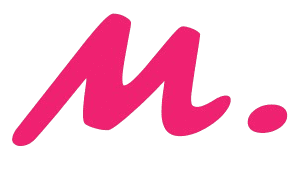Best Self-Help Books to Unlock Your Potential

Unlocking Your Potential: Best Self-Help Books for Personal Growth
Looking to grow, focus, or finally get unstuck? I’ve been there—staring at a stack of books and wondering which ones are actually worth my time. Below you’ll find a handpicked, honest list of the best self-help books to read for personal growth, plus feedback, short reviews, and practical takeaways you can use today.
Why reading self-help books can actually work
Self-help isn’t magic. It’s a set of ideas, habits, and small experiments you can try. The right book can give you a new lens on old problems, a simple habit to adopt, or a motivating nudge when you need it. I’ve found that books that mix stories, science, and clear steps stick with me longest.
How I chose these books
- Practical tools you can apply immediately
- Evidence-backed ideas or well-explained frameworks
- Relatable writing and memorable examples
- Strong reader feedback and long-term staying power
Top self-help books to read (with reviews and feedback)
1. Atomic Habits — James Clear
Why it helps: This book breaks habit change down into tiny, repeatable steps. James Clear’s system is practical and easy to implement.
What you’ll get: Habit stacking, environment design, and a focus on identity-based change rather than willpower alone.
Feedback & reviews: Readers love the actionable templates. From my experience, doing one tiny habit consistently made bigger goals feel achievable. Many reviewers praise its simplicity and shareable ideas.
2. Mindset: The New Psychology of Success — Carol S. Dweck
Why it helps: Dweck introduces fixed vs. growth mindsets. Once you spot a fixed mindset pattern, you can reframe setbacks as learning opportunities.
What you’ll get: Practical examples from education, sports, and business that make the theory feel usable.
Feedback & reviews: Teachers, parents, and managers often cite this book as transformative. I noticed I stopped treating feedback as failure after re-reading chapter examples.
3. The Power of Now — Eckhart Tolle
Why it helps: If anxiety or overthinking trips you up, this book’s focus on present-moment awareness can be grounding.
What you’ll get: Mindfulness insights, exercises to reduce mental noise, and spiritual reflections that are surprisingly practical.
Feedback & reviews: Some readers find the tone dense at first, but many report long-lasting calm and clarity after applying the practices. Personally, short daily pauses helped me get through high-stress days.
4. The Subtle Art of Not Giving a F*ck — Mark Manson
Why it helps: Mark Manson cuts through motivational fluff with tough love. It’s about choosing what truly matters and letting go of the rest.
What you’ll get: Realistic advice on responsibility, values, and dealing with pain.
Feedback & reviews: Fans appreciate the blunt style and relatability. If you like honest, no-nonsense advice, this one’s a quick, energizing read.
5. Grit: The Power of Passion and Perseverance — Angela Duckworth
Why it helps: Duckworth shows that perseverance and consistent effort often beat raw talent. The concept of grit reframes how you pursue long-term goals.
What you’ll get: Research-backed insights and stories from educators, athletes, and entrepreneurs.
Feedback & reviews: Many readers say this book shifted how they track progress and measure success. I started focusing on steady practice instead of perfection—and that change stuck.
6. How to Win Friends and Influence People — Dale Carnegie
Why it helps: Classic communication and relationship strategies that still work. This book is full of simple behavioral changes that improve interactions immediately.
What you’ll get: Techniques for listening, persuading, and building rapport without being manipulative.
Feedback & reviews: Timeless. People often report immediate improvements at work and in personal relationships after trying the techniques.
How to read self-help books so they actually help
- Read with a purpose: What one problem are you solving? Focus on that.
- Take tiny actions: Try one idea for a week, not ten at once.
- Journal your experiments: What worked, what didn’t, and why?
- Discuss with friends: Talking ideas out helps cement them.
Real reader feedback and quick takeaways
From comments I’ve gathered across reading groups and friends, here are common themes:
- Atomic Habits is recommended for habit formation and daily routines.
- Mindset and Grit are top picks for long-term goals and learning environments.
- The Power of Now is often recommended for reducing stress and improving presence.
- How to Win Friends is a go-to for anyone wanting better social skills and workplace influence.
Personal pick: which book to start with
If you want a single book to start, go with Atomic Habits. It’s practical, short on theory-heavy language, and gives you small wins fast. If you’re battling negative self-talk or paralysis by analysis, start with The Power of Now or Mindset.
Final thoughts
Books won’t do the work for you, but they can point the way and give tools to try. Pick one, try a single habit or technique for a week, and assess. Over time, those tiny changes compound—just like the habits inside these pages.
Got a favorite self-help book that’s changed your life? Share it with a friend, or write it down in your journal. Sometimes recommending a book is the first step toward actually reading it.









